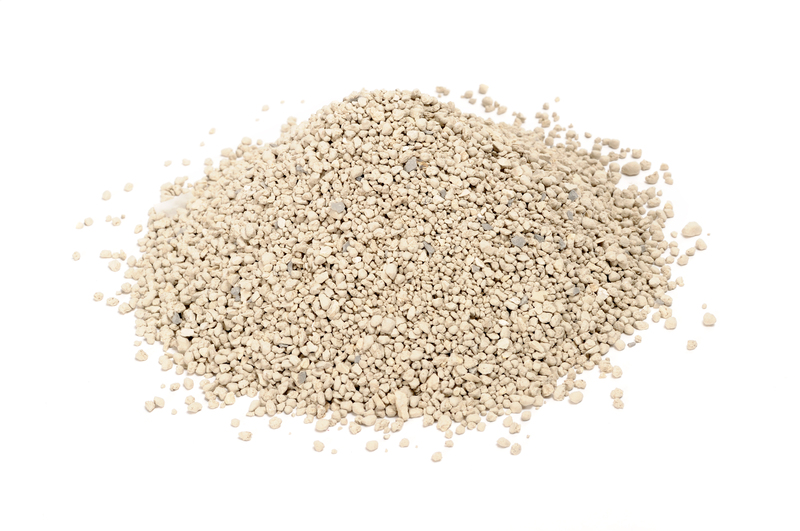Simple Methods to Clean Aluminium Cookware
Posted on 10/08/2024
Aluminium cookware is a staple in many kitchens due to its excellent heat conductivity and lightweight properties. However, keeping aluminium pots and pans clean can be a bit challenging requiring a few specific techniques. This article will guide you through some simple and effective methods to ensure your cookware remains in top-notch condition.
Why Choose Aluminium Cookware?
Aluminium cookware is preferred by many chefs and home cooks because of its quick heating properties and affordability. But to make the most out of your aluminium cookware, proper cleaning and maintenance are essential.

Basic Cleaning Methods
Regular cleaning of your aluminium cookware will help maintain its shiny appearance and extend its lifespan. Here are some easy steps to follow:
1. Warm Water and Mild Detergent: After each use, wash your aluminium cookware with warm water and a mild detergent. Use a soft sponge or cloth to avoid scratching the surface.
2. Avoid Using Harsh Scrubbers: Steel wool and other abrasive scrubbers can scratch and damage your aluminium pots and pans. Opt for non-abrasive cleaning tools instead.
Removing Stubborn Stains
Sometimes, regular washing is not enough, especially if there are burnt-on residues or stubborn stains. Here are a few methods to tackle them:
1. Baking Soda Paste: Make a paste using baking soda and water. Apply this paste to the stained areas and let it sit for a few minutes before scrubbing gently with a soft cloth.
2. Vinegar-Water Solution: Fill the cookware with equal parts of water and white vinegar. Bring the mixture to a boil, then let it cool and scrub lightly to remove stains.
3. Cream of Tartar: Adding cream of tartar to water and boiling the solution in your pot can help remove discoloration. Let it sit for a bit before scrubbing gently.
Dealing with Oxidation and Tarnish
Over time, aluminium cookware may develop a dull or tarnished appearance due to oxidation. Here's what you can do:
1. Vinegar Soak: Soak the tarnished pot in a vinegar-water solution (1:1 ratio) for 10-15 minutes. Rinse thoroughly and dry immediately to prevent further oxidation.
2. Lemon Juice and Salt: Combine lemon juice and salt to create a paste. Rub this paste onto the tarnished areas using a soft cloth and then rinse with warm water.
3. Commercial Aluminium Cleaners: There are specific cleaners available designed for aluminium cookware. Follow the instructions provided by the manufacturer for the best results.
Tips for Maintaining Aluminium Cookware
- Avoid High Heat: Excessive heat can cause discoloration and warp your aluminium cookware. Use medium to low heat for cooking.
- Season Your Cookware: Periodically, boil water and add some lemon juice or vinegar to maintain the shine and prevent tarnishing.
- Dry Immediately: After washing, dry the cookware immediately to prevent water spots and oxidation.
Pros and Cons of Aluminium Cookware
Pros:
- Excellent heat conductivity
- Lightweight and easy to handle
- Affordable and widely available
Cons:
- Prone to scratching and denting
- Reacts with acidic foods, which can result in a metallic taste
- Requires extra care to prevent oxidation and discoloration

Takeaways
- Regular cleaning with mild detergent and warm water helps in maintaining the cookware's appearance.
- Avoid using abrasive cleaners and scrubbers.
- Use natural solutions like vinegar, baking soda, and lemon juice to remove stubborn stains and oxidation.
Conclusion
Keeping aluminium cookware clean and gleaming does not have to be a daunting task. With some simple methods and regular maintenance, you can enjoy the benefits of your aluminium pots and pans for years to come. Remember to avoid harsh abrasives, use natural cleaning solutions where possible, and always dry your cookware immediately after washing.
By following the tips and methods outlined above, you'll ensure that your aluminium cookware remains a reliable and attractive part of your kitchen arsenal.
Latest Posts
Deep Cleaning: Kitchen Edition
Suede Sofa Cleaning: Home Remedies
Pet-Friendly Carpet Maintenance Guide



